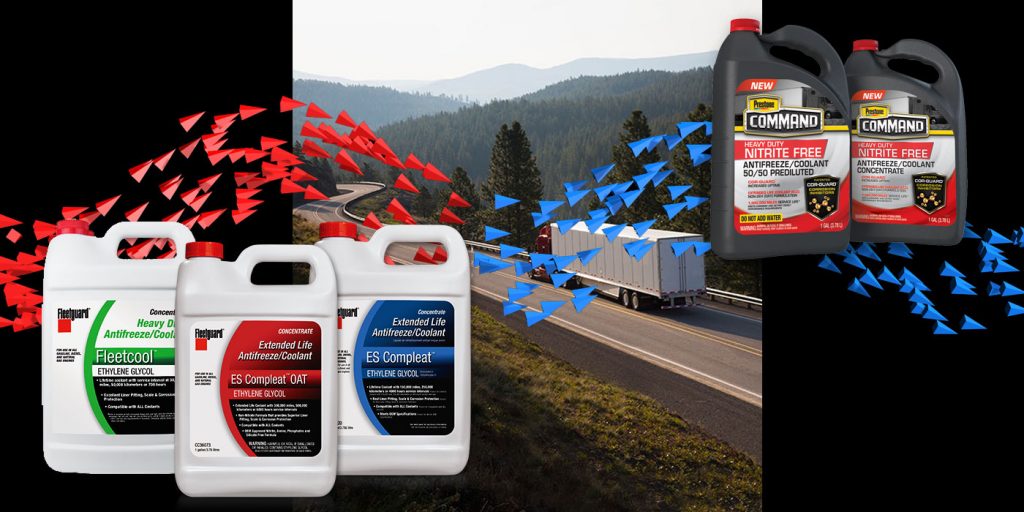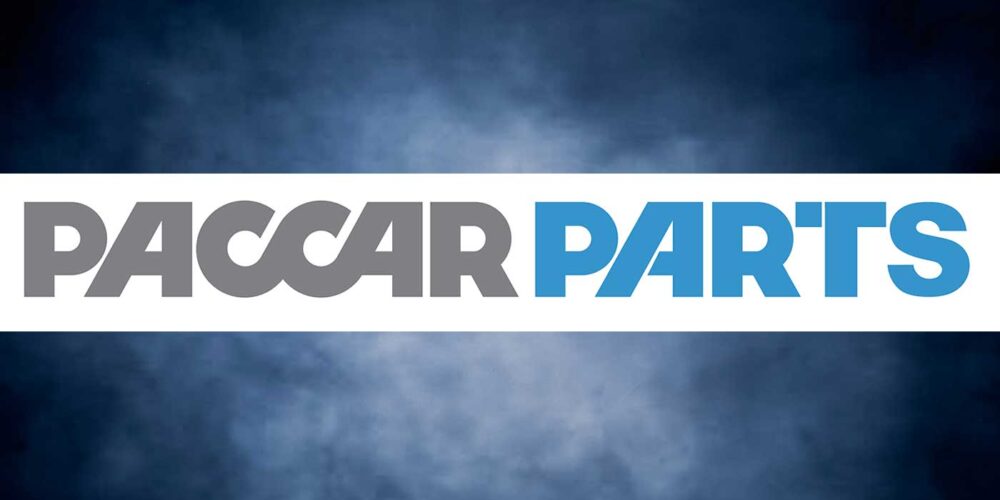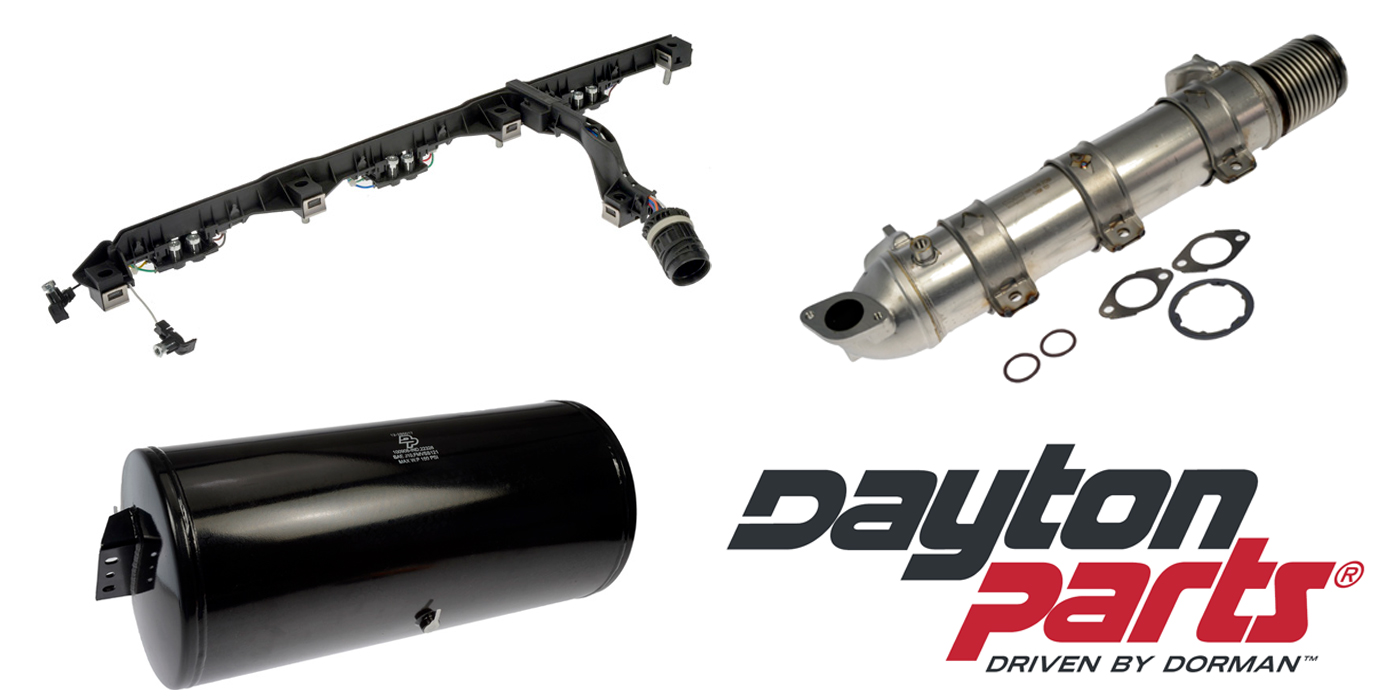FE surveyed coolant experts around the industry about the most important things fleets should know when it comes to their coolant. Below is a brief guide to your trucks’ coolant, in the form of 10 of their most important coolant tips.
- First things first: know what kind of coolant your truck OEM recommends, and what each truck was factory-filled with. If you’ve bought a used truck, you’ll want to know what coolant the previous owner was using as well.
- There are quite a few different types of coolant, including Conventional Fully Formulated, Hybrid and/or Organic Acid Technology, Extended Life coolants and those with and without nitrite. You’ll want to familiarize yourself with these and know what your trucks use. You may be able to tell from the color: TMC recommends purple for the fully formulated coolants, and red for the extended life coolants, for instance.
- That being said, do not mix these different types of coolant in the same truck. “The problem with topping off a fully formulated cooling system with extended life coolant is you’re diluting the additive technologies in both products, and in this case they don’t work together to fight corrosion,” says Stede Granger, OEM service manager for Shell. “So, as you add more extended life coolant, you’re diluting the amount of additive you have from the fully formulated conventional coolant. Mixing the two coolants will result in not enough additive from either to protect the engine, which could result in engine failure.”
- Darryl Purificati, OEM technical liaison for Petro-Canada Lubricants, recommends selecting a pre-mixed solution to ensure that the concentration is correct and consistent.
- According to Mark Alexander, director of product management for Old World Industries, you should find out if the coolant supplier has certified if the product offered is made from virgin or recycled materials and complies with minimum requirements for heavy-duty coolant as listed in appropriate ASTM, TMC and SAE specifications/recommendations.
- “If you’re buying bulk (unpackaged) coolant, be sure to include specific instructions regarding coolant quality during transit and delivery,” recommends Lauren Lewis, senior technical support specialist of coolant and chemical technology for Cummins Filtration. “Be clear about your requirements for cleanliness, verification of product type, and so on.”
- Dan Holdmeyer, industrial and coolants brand manager at Chevron, recommends finding out whether you need nitrited or nitrite-free coolant, and whether you need to condition any new radiators.
- Holdmeyer also suggests asking yourself whether your fleet wants all of its coolants to be consolidated and/or replaced; in other words, do you want all of your trucks to use the same coolant? If so, you’ll need to follow the right procedures.
- If you’re looking at switching coolant brands or types, Colin Dilley, vice president of technology for Prestone, recommends asking: what am I trying to achieve with my coolant change? “Coolant is often taken for granted and the financial return on investment for it is overlooked,” he says. “Coolant is designed to do one thing: keep the temperature of the engine at an optimal temperature so the engine is the most fuel efficient and produces the least amount of emissions. To perform in this manner, the coolant must do two things well: (1) transfer heat from the engine and (2) keep the cooling system clean by preventing and eliminating future corrosion for the life of the coolant so it works as it is designed.”
- Switching from one type of coolant to another is not easy. Engine oils, for instance, are usually drained and then refilled with a new oil; but this rarely if ever happens with coolant, as it’s both costly and difficult to do so. So if you do want to switch your fleet over to a different type of coolant, you need to be sure to follow the appropriate steps, working with your coolant supplier to do so, according to Shell’s Granger. Your coolant supplier may offer products that help with this; in Shell’s case, Granger says, that would be Shell Rotella ELC correction fluid, which brings up the additive level in the existing coolant to the level it needs to reach to provide the expected corrosion protection in the cooling system.
Read more coolant information from FE in our related story, “Keep the summer sun from overheating your engines.”














